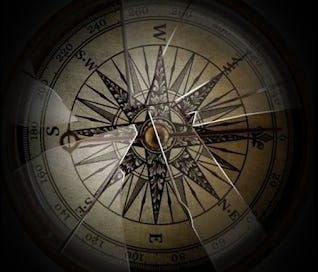Learning to Live with Grief

In the new Hidden Brain episode, Healing Your Heart, resilience researcher Lucy Hone shares her personal painful experience with grief. The episode is partly geared towards debunking longstanding beliefs that grief operates in predictable stages. Grief, as sadly we all must learn, is highly personalized. As Hone says, "Grief is as individual as your fingerprint." So, no grief stages, no predictable pattern, no cycles, no guidelines, no compass.
~ The Grief Ambush ~
I have often said that, in my experience, grief comes in waves. I very much like Hone's language -- that grief ambushes. The concept of a Grief Ambush would have been useful for me as I processed my personal griefs and I believe it will come in handy in the future when an ambush arrives as they inevitably do when you least expect or feel inclined to want to deal with the hard moments in our lives.
Resilience matters. It can help move the process in the right direction. Grief must be processed and it takes time. It takes rest. It requires breaks, as Hone notes. We have to do the oxygen mask thing. It's essential. Otherwise, we can't be there for anyone else.
~ Taking Grief By The Hand ~
On the path towards survival and recovery and moving forward with grief, we need to allow ourselves to take breaks for positive life moments to happen again.
Hone notes, "Grief is full of choices." It often doesn't feel that way. A useful distinction is made between how we react to feeling of grief (or a "grief ambush") and how we respond. The reaction is automated. You may feel physically ill. It may be hard to focus. We do have power over how we respond. We can take a step back and make difficult choices. We can tell ourselves we will only live in the past for so long before we give ourselves permission to enjoy something positive that is happening in the here and now.
~ The Language of Grief ~
"It's important for people to find the language that works for them," says Hone. I couldn't agree more. As a person who dwells in languages, this hits home. Language is personal. Our personal language is part of our personal universe and it matters. It let's us speak to ourselves and others in ways that can help us heal.
~ Grief Spares No One ~
Hone says, "adversity doesn't discriminate" and that's 100% true. If you stick around long enough, you will lose loved ones, you will have sadnesses in your life, you will feel grief-stricken and potentially lost and broken for a time. But you can come back. You can always come back. It's essential to believe this.
~ Your World Grows ~
Another terrific quote shared is, "Do what you can with what you have from where you are." The only choice is to pivot from the present.
"Your grief stays the same but your world grows around you." When you are grieving, you may feel that you should not feel any happiness, that you do not deserve to ever feel good moments again, that others do not want to see you having positive moments, see you smile, see you laughing -- how horrible must a person be to have a great loss and find a way to look satisfied with their life. Right? We all know these thoughts. We know how it goes. You don't move on but you can move forward with your grief. It's ok to not be ok, and, at some point, you get to take a deep breath and tell yourself that it's ok to be ok.

ReplyForward




